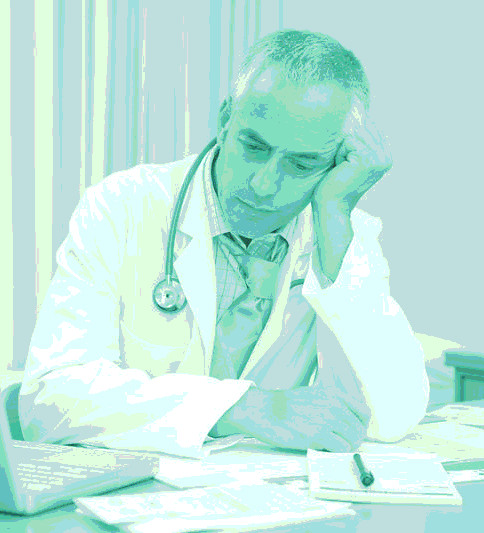Older docs could block burnout
 Experts say senior, influential and experienced doctors must lead action to protect their younger colleagues from debilitating burnout.
Experts say senior, influential and experienced doctors must lead action to protect their younger colleagues from debilitating burnout.
Professor Michael Baigent, a professor of psychiatry, and Dr Ruth Baigent, a general practitioner, say older doctors may look back “on their pressurised junior years through rose-coloured glasses and see [burnout] as a rite of passage”.
Burnout is broken down into three main aspects: exhaustion, cynicism (role negativity, feeling callous and detached) and professional efficacy (self-evaluation of competence and achievement).
“When the doctor has symptoms severe enough to also qualify for a mental illness, they are likely to be diagnosed; burnout is regarded as an aetiological factor. If the doctor falls short of a clinical diagnosis, burnout becomes the explanation and problem,” the experts say in an article for the Medical Journal of Australia.
“Although not a diagnosis, the concept of burnout nevertheless resonates. Most doctors recognise it in a colleague’s uncharacteristic irritability, drowning fatalism and loss of belief in professional identity and efficacy.”
Studies have shown that around 32 per cent of Australian doctors have high levels of exhaustion and 35 per cent had high levels of cynicism, two of three domains of burnout, the third being loss of belief in professional identity and efficacy.
“The beyondblue survey found young doctors to be at greatest risk, with those aged under 30 years most likely to report burnout (high exhaustion, 48 per cent; high cynicism, 46 per cent),” the article says.
“There was a steady reduction across older age bands, with 11% of doctors aged over 61 years reporting emotional exhaustion.
“Perhaps those who burn out, get out of the profession,” they say.
“Also, in the life cycle of the doctor, the levels of external evaluation and autonomy also change favourably with years of experience … In burnout research generally, younger age is a more consistent variable than personality in determining burnout.”
Avoiding burnout, they say is a “shared responsibility”.
‘Epidemic’, ‘crisis’ and ‘urgent need’ are words accompanying discussions of burnout and doctor suicides.
“Yet, despite this bombardment, there has been no sustained approach to achieve an effective national response.
“It is too easy to blame the system and, likewise, for the system to blame the doctor. A certain amount of work-hardening and experience is necessary, but perhaps older doctors look back on their pressurised junior years through rose-coloured glasses and see it as a rite of passage.
“Is it not time for senior, influential and experienced doctors to lead action on behalf of our young apprentices?” they conclude.







 Print
Print